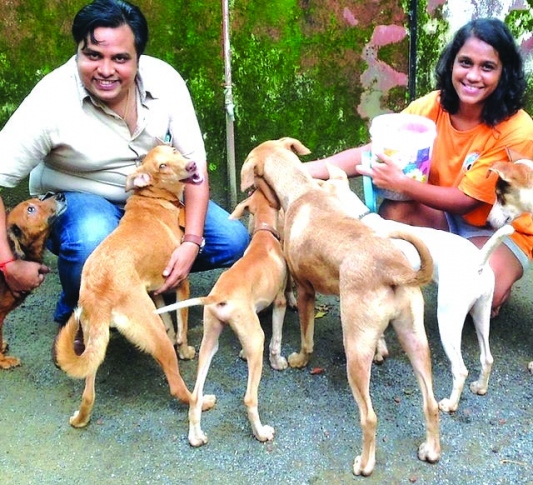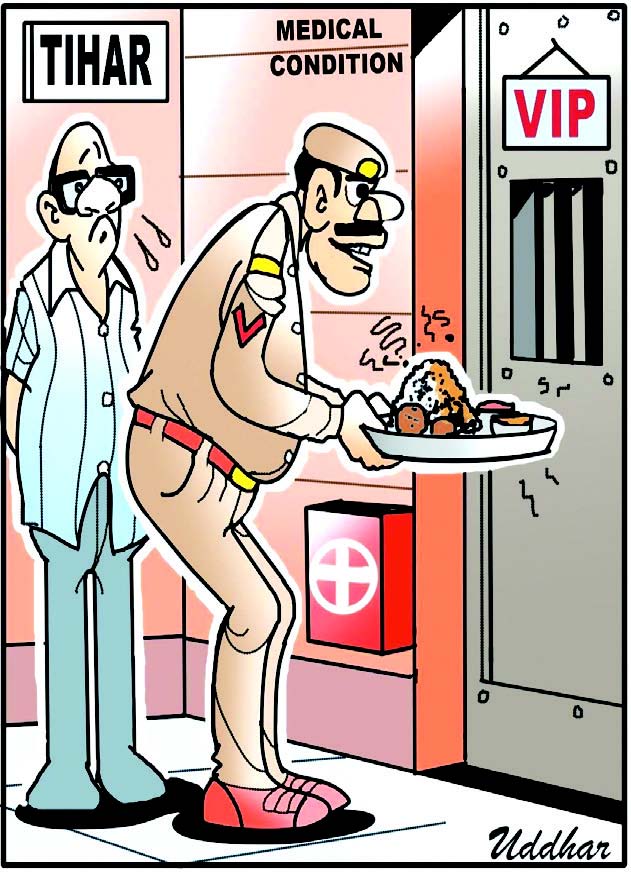
ANISHA FRANCIS
MARGAO: When Atul Sarin moved to Goa from the UK 17 years ago, it was for a more susegad lifestyle; one where he gets to enjoy the balmy weather and lush green locales of the sunshine State. Little did he know he was in for a second career- one that involved him being on his feet throughout the day, feeding, nursing, and fighting for the rights of the thousands of animals that are left to languish on the streets of Goa every year.
Atul, who turns 60 this year, is the founder of WAG- Welfare of Animals in Goa, an organisation that rescues injured and abused animals, and sterilizes dogs and cats in an attempt to control the burgeoning stray population in the State.
“In the early 2000’s, I was on holiday in Goa during the monsoon, and noticed the staggering number of starving dogs on the streets and beaches. It hit me that the State’s seasonal tourism industry was responsible for this – shacks and restaurants throw out copious amounts of food waste that results in a population explosion of stray animals- cats, dogs and cattle. When the shacks close and the tourists have left, there is no source of sustenance for these creatures, and the suffering is immense. I had to do something,” he recounts the origin story of WAG.
Each year, WAG rescues more than 1,000 injured cattle, sterilises over 1,000 cats and dogs, gives out over 2,000 anti-rabies vaccinations and oversees 300 adoptions. The organisation now employs 11 full-time staff, including two veterinary doctors.
Being an animal rescuer requires tremendous mental strength and determination, to cope with the pain and suffering they witness daily. Atul and his team are privy to shocking cases of animal cruelty and are often called to rescue animals that have been hit by vehicles, attacked with axes, scalded with boiling oil or water, shot with air guns, burnt with firecrackers and even acid, caught in wire traps, beaten and tortured- the list is endless.“There are laws protecting animal rights, but enforcement is very poor, simply because there is no will from the enforcing agencies,” says Atul. There is a very high rate of depression and suicide amongst animal rescuers everywhere. It is very difficult and disheartening at times, but we have to soldier on,” he says.
While it is mostly donations that keeps WAG afloat, the NGO receives some government funding for small-animal sterilisations and cattle feed. “During the Covid-19 lockdown, it was very difficult to carry on with our beach-feeding drives as food supply was scarce. We had to appeal to people to bring in banana and jackfruit leaves from their garden to sustain the 70-odd residents at our Siolim facility,” he recalls. Several NGOs working with animals in Goa have shut down due to lack of funding, and the State requires at least 10 more such organisations to tackle the quantum of work that comes their way.
A qualified lawyer, Atul lived in Kenya before moving to the UK, where his parents built a business. With his work fully consuming his life now, he’s nonplussed when asked what he likes to do for fun. “I like travelling around India, but hardly get the time. What I really want to do is take a step back from the daily routine of feeding and caring for our wards, to concentrate on pressing issues like policies and laws governing animal rights. I also want to research the use of alternative medicine and natural therapies to supplement allopathic drugs, in animal care,” he says.
“I haven’t found anyone to help run WAG in my stead, though, to allow me to step back. Someday, maybe,” he says, cheerfully.
---
Goa’s stray cattle issue can be remedied, if local bodies chipped in more
Addressing the State’s stray cattle problem, often called a ‘menace’ in the media, Atul says help from local panchayats and municipalities could go a long way in impounding these gentle animals, and preventing road accidents. Fifty per cent of cattle we see on Goa’s roads are actually owned, but are left to fend for themselves as their owners have sold their farmlands, and have no place to keep them. “It’s very sad to see herds of cows, many of them who were born on the streets, surviving on garbage and ingesting plastic and other waste like discarded batteries and blades,” says Atul. “When we rescue wounded cattle, some of them barely days old, we nurse them back to health and re-home them in a goshala, but most goshalas are full. Panchayats could offer their fallow land, temple and church-owned properties and comunidade land, to open up more goshalas. These goshalas can also be self-sustained, using cow dung and urine to make fertiliser and even set up bio gas plants,” he adds.
